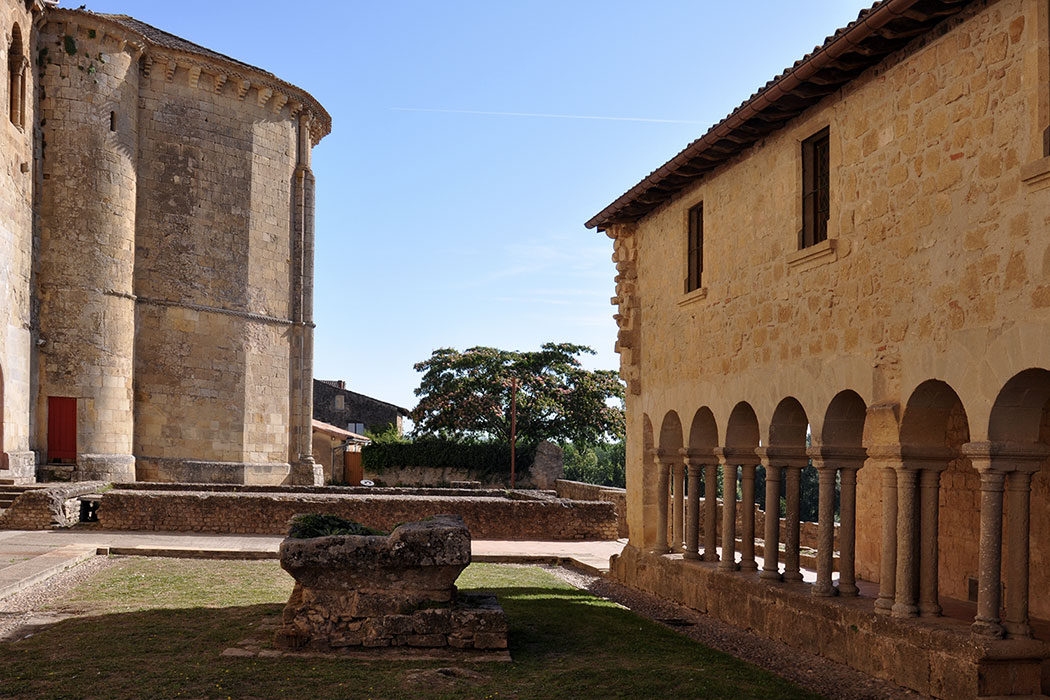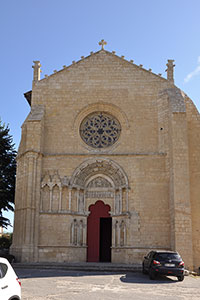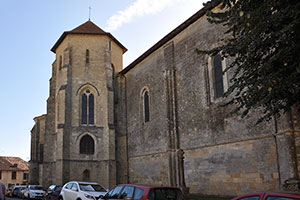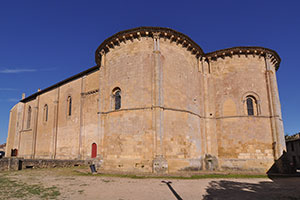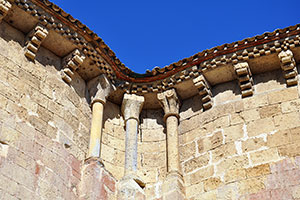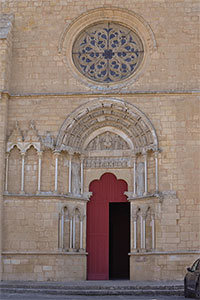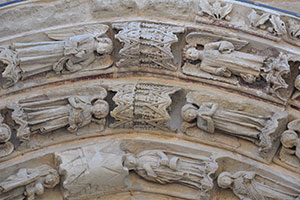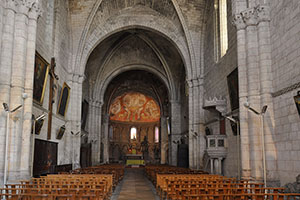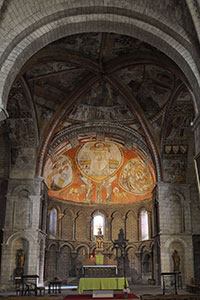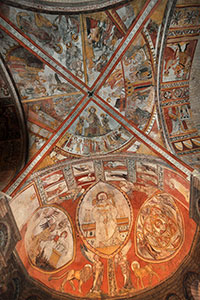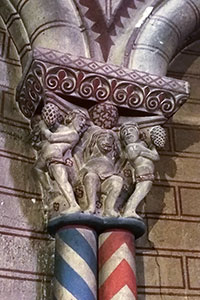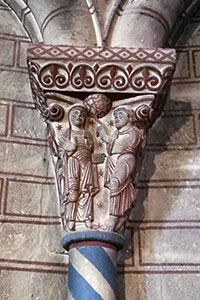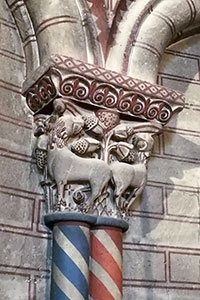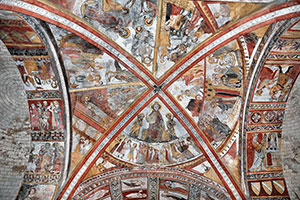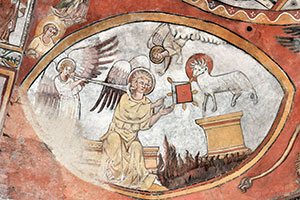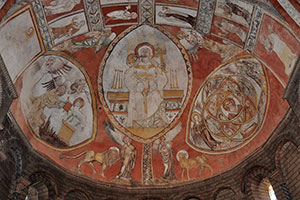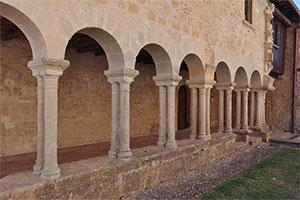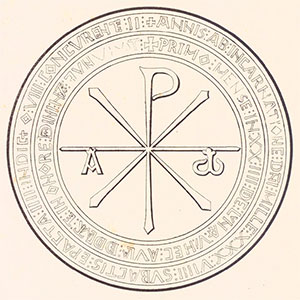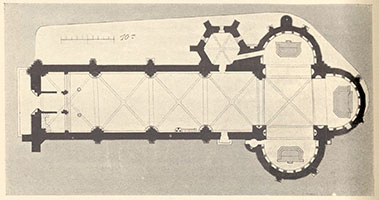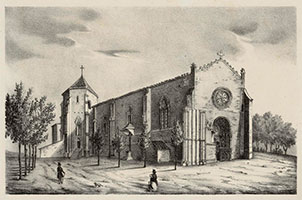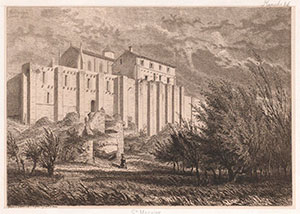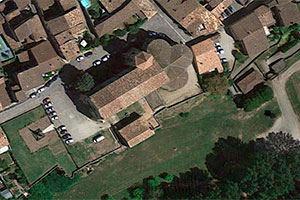Priory of Saint-Macaire
Prieuré de Saint-Macaire / Saint-Laurent / Saint-Sauveur / Sent Macari / S Macarius
(Saint-Macaire, Gironde)
According to tradition, Saint Martin sent his disciple Macarius to these lands to evangelize them. Upon his death, his companions buried him in a chapel dedicated to Saint-Laurent, in the place called Ligena, a town that would later take the name of Saint-Macaire in his memory.
The devotion to the saint's relics led to their transfer to Bordeaux in 1027, despite the opposition of the monks of Saint-Macaire, which may already have been a priory at that time. According to a poorly documented tradition, Duke William of Aquitaine donated the town of Saint-Macaire to the abbey of Sainte-Croix of Bordeaux; other versions indicate that he donated the priory of Saint-Macaire along with its assets. In any case, the disputes between both parties continued over time and were not resolved until 1170.
Furthermore, according to an inscription, the priory church was consecrated in 1040, probably already dedicated to Saint-Sauveur. That building was replaced in the 12th century by the current church, after it was left in ruins in 1096 due to an attack by the Duke of Aquitaine. Both the town of Saint-Macaire and the priory, along with the church (serving both as priory and parish), suffered the effects of various military conflicts in the region, notably in 1224, 1446, and during the 16th century religious wars. In 1579, the priory passed into the hands of the Jesuits, who maintained its parish functions. However, by 1583 the church was already in a state of ruin. Its progressive abandonment, together with the effects of the French Revolution, further contributed to its deterioration.
Today, the church of Saint-Sauveur still stands, a Romanesque building corresponding to the reconstruction carried out in the 12th century, which has undergone numerous transformations over time. It consists of a single nave and is topped by three semicircular apses of equal size, arranged in a trefoil shape. The apse area is the oldest part, while the nave was built later. The apse features a remarkable series of capitals, many of them decorated with narrative scenes. A good portion of the original wall paintings also survives, although they have been altered over the years. On the north side of the church stands a hexagonal bell tower from the 14th century. Of the former monastic buildings, part of the cloister has been recovered and can be found on the south side.
- BEAUNIER, Dom (1910). Abbayes et prieurés de l'ancienne France. Vol. 3: Auch, Bordeaux. Abbaye de Ligugé
- BRUTAILS, Jean-Auguste (1912). Les vieilles églises de la Gironde. Bordeus: Feret et Fils
- DES MOULINS, Charles (1860). Peintures de Saint-Macaire. Bulletin Monumental. París: Derache
- DESHOULIÈRES, M. (1941). Saint-Macaire. Congrès rchéologique de France. CII session. Bordeaux el Bayonne. París: Picard
- DROUYN, Léo (1861). Saint-Macaire et ses monuments. París: Derache
- DROUYN, Léo (1865). La Guienne militaire : histoire et description des villes fortifiées, forteresses et châteaux… Vol. 2. París: Didron
- DUBOURG-NOVES, Pierre (1969). Guyenne romane. La Pierre-qui-Vire: Zodiaque
- DUCOURNEAU, Alexandre (1844). La Guienne historique et monumentale. Bordeaux: Coudert
- GAUBAN, Octave (1873). Histoire de La Réole. La Réole: Vigouroux
- JOUANNET, François-R.-B. (1839). Statistique du département de la Gironde. Vol. 2. París: Dupont
- PROUST, Claude (1724). Les Vies des saints pour tous les jours de l'année. Vol. I. Bordeus: De Lacourt
- VIRAC, Désiré Antoine (1890). Recherches historiques sur la ville de Saint-Macaire. Bordeus: Feret & Fils
